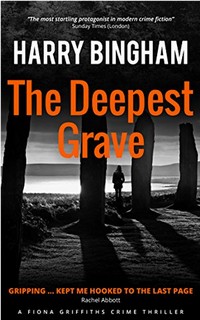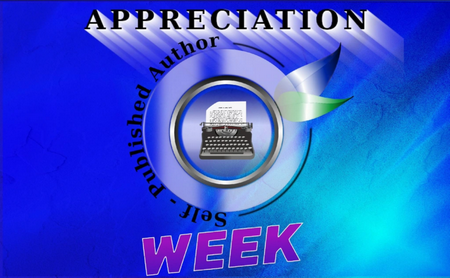 The Deepest Grave
The Deepest Grave
DETAILS: Series: Fiona Griffiths, #6 Publisher: Sheep Street Books Publication Date: June 14, 2017 Format: Kindle Edition Length: 488 pg. Read Date: July 22-25, 2022

‘Suspicious circumstances, sir? I mean, what? An open window, something missing, that kind of thing?’
‘Well, I don’t know about the windows. That part hasn’t been reported to me. But the uniformed officer currently attending the scene did say that this woman appears to have been beheaded. I daresay there’ll need to be some further forensic work needed before we can be certain, but it appears that the weapon of choice was an antique broadsword. It’s obviously early days, but I’m going to stick my neck out and say that no, Gaynor Charteris probably did not slip on any stairs.’
What’s The Deepest Grave About?
It’s been 453 days since Fiona’s investigated anything to do with a murder, and she’s getting impatient for something interesting to do. She’s aware that’s a lousy way for a police detective to think, and really can’t find it in herself to care. The crime scene she’s sent to (along with a new DI who is going to make life difficult for her—and she’ll repay in kind) will likely make up for that. I’ll quickly note that this opening scene just might be the most entertaining opening in the series—and definitely one of the more entertaining I’ve read this year.
You don’t get much more interesting in the 21st century than finding a woman decapitated with three spearpoints thrust into her heart. It makes a bit more sense when they learn their victim is an archeologist and professor, specializing in ancient Wales—but only a little bit.
Her new DI wants to focus on “highly disturbed” locals, but Fiona knows that’s wasted time (she wastes it on command, but still). She finds some other crimes in nearby jurisdictions that involve the thefts of largely (monetarily) worthless historical artifacts and documents from about the same era as the dig that their victim was working. Fi doesn’t understand the link or ultimate target of the criminals, but she’s convinced there’s a link. Interrupting an armed individual in the midst of a similar crime only hardens her view.
Her DI isn’t yet convinced but gives her enough rope to hang herself.
And, well, what ensues is both unlike much of what you’ve read before yet exactly what you should expect from a Fiona Griffiths case.
Arthur
One thing that frequently bothers me when I read Crime Fiction is when a significant scientific breakthrough happens—like when Gideon Oliver is part of the discovery of something that alters the foundations of anthropology when Joe Pickett discovers a species hasn’t gone extinct after all, or when Robert Langdon does whatever it is that he does to get to the “real history” of something. When Fiona started messing around with Welsh burial sites and people digging around the legend of Arthur, well, that made me nervous.
However, what Bingham does with this setup is ingenious—we get all the research and history surrounding the legend that the above authors (and others) give. But the book isn’t about Arthur, it’s about looking into him, the artifacts surrounding him—and most importantly, those who are doing the research*.
* This group includes a vicar who is a simply delightful character. A better or more thorough blogger (or just one with better time management skills) would spend some time describing him. I’m going to pretend that I don’t so that you get all the joy of disCovery yourself. I’ll just say that he starts off being a kick and gets better.
A Different Encounter with Death
Was there a moment? I always wonder that. Is there ever an exact moment of death? One microsecond you’re there, the next you’re definitely not? People, even doctors, always talk as though that partition exists, but personally I doubt it. I suspect that death creeps over us more gradually than that: an ever- dimming sunset, not a sudden rush into night.
Readers of this series know that Fi has…an interesting perspective on death. This leads to a strange attachment that she develops to the murder victims in her cases. While investigating this particular murder, she befriends a woman with a degenerative and likely terminal illness.
Fiona reacts to this in a way that probably deserves a few paragraphs of analysis from better writers. It felt genuine and troubling—maybe frightening. Which led to some rewarding reflection on Fi’s part. In turn, this resulted in some choices on her part that show that Fi’s desire to be part of Planet Normal is within reach. It’s some of the best character development we’ve seen from her for a while.
The Author’s Note
There’s a great, great note after the novel about things like choosing to center so much of this on Arthur as well as describing the kind of mystery novel that Bingham is writing, and what kind of character Fi is, compared to others in the genre over the last century or so.
For those looking to really dig into the character of Fiona Griffiths, this is something you need to read (even if it’s the kind of thing you tend to skip).
So, what did I think about The Deepest Grave?
In addition to the main story, we get some resolution (some that is encouraging, some that isn’t) about some old cases and people throughout this book. Some of Fi’s relationships are changing and she’s changing with them.
This is both a very clever crime and the way that Fiona counters it is equally clever. There’s nothing about this part of the novel that I didn’t like (although there was one red herring that I’d have preferred some more resolution). When Bingham’s on his game, he’s really on it—and this book shows it.
It’s been a few years since this came out, which makes me worry that we’re not going to see another entry in the series—despite what the material at the end of the book suggests. If so, this is a fitting way to see the series end and it will go out on a high note. If Bingham returns to these, I’ll be more than ready—I’m not prepared to say goodbye to Fi just yet if I don’t have to.

![]()




Read Irresponsibly, but please Comment Responsibly